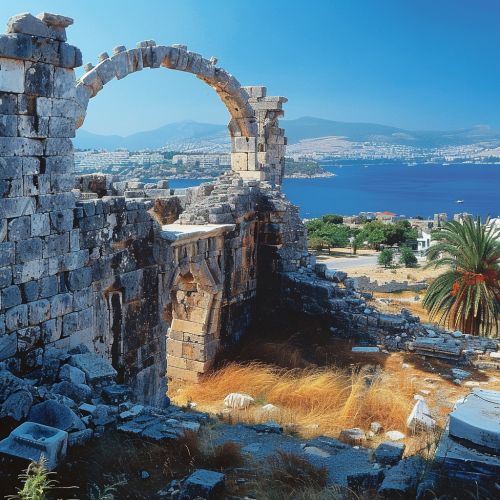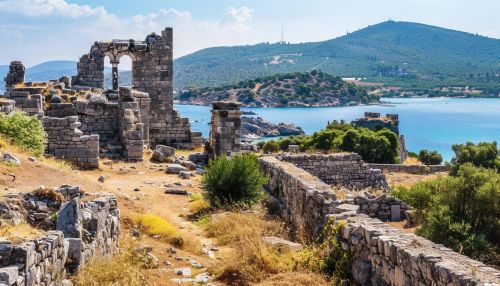Herodotus
Early Life
Herodotus was born in the city of Halicarnassus, a Greek city in southwestern Asia Minor that was then part of the Persian Empire, in the modern-day Bodrum, Turkey. The exact dates of his birth are not known, but it is agreed upon that he was born around 484 BC. His family was of the upper class, possibly part of the ruling elite of Halicarnassus.


Works
Herodotus is primarily known for his work 'Histories', which is often considered the first work of history in Western literature. The 'Histories' is a record of his "inquiries" (or ἱστορίαι, a word that passed into Latin and took on its modern meaning of 'history'), a term that indicates these were investigations conducted by Herodotus in the tradition of other West Asian scholars.
Methodology
Herodotus' approach to history was unique for his time. He relied heavily on primary sources and eyewitness accounts, a methodology that was not common in his era. He was also one of the first historians to use a narrative framework to tie his historical events together, making his work a readable, coherent narrative rather than a simple collection of facts.
Influence and Legacy
Herodotus' influence on the field of history is immeasurable. His method of using primary sources and eyewitness accounts set the standard for historical research. His narrative style made history accessible and interesting to a broad audience, and his insistence on the importance of cultural and social factors in the shaping of history has been a major influence on modern historiography.
Criticism
Despite his significant contributions to the field of history, Herodotus has not been without his critics. He has been accused of being more of a storyteller than a historian, with some of his accounts being more fanciful than factual. However, many modern historians argue that these criticisms are unfounded, and that Herodotus' work remains a valuable resource for understanding the ancient world.
